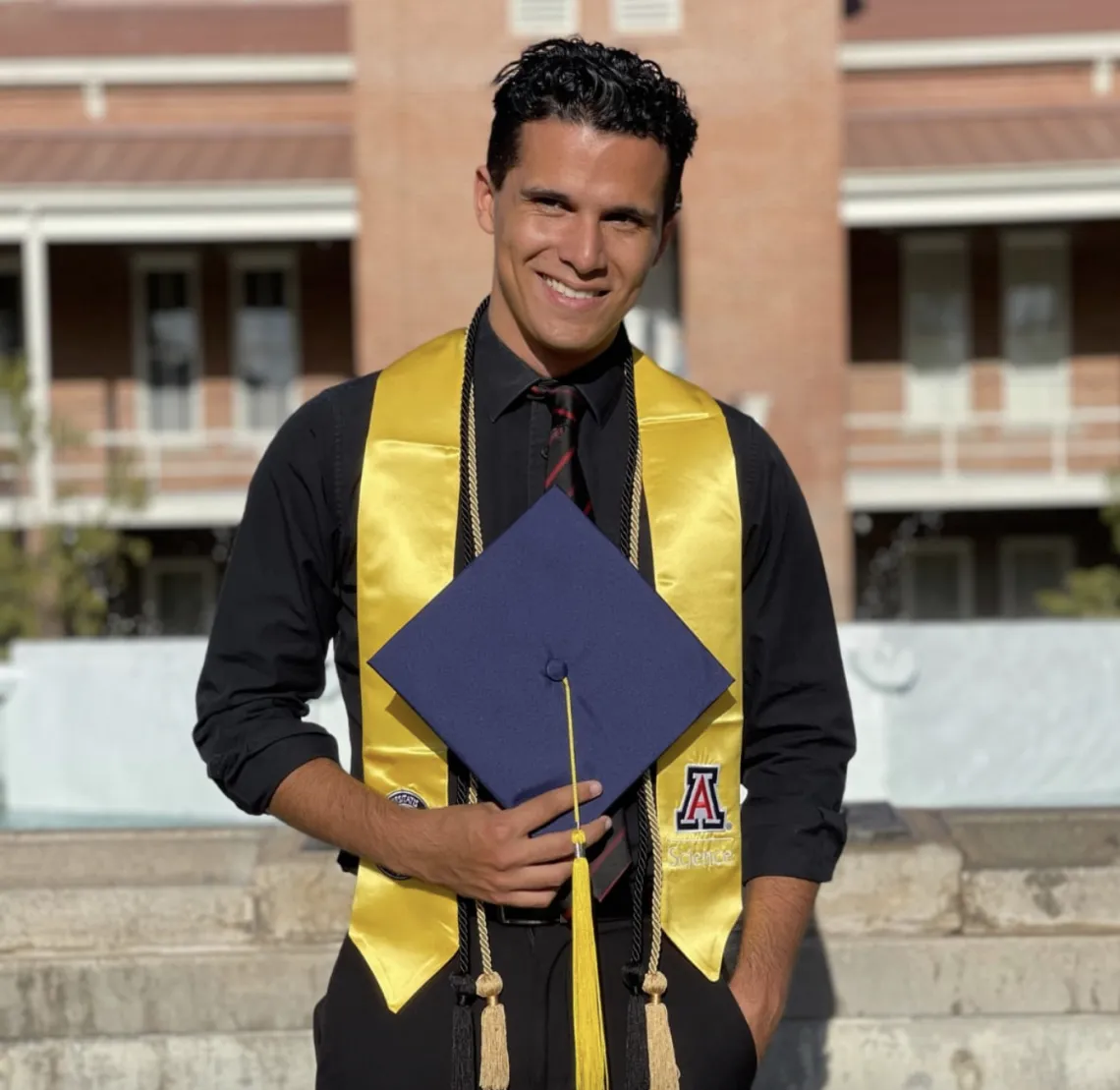Scientist Spotlight: Bassil Ramadan

At the University of Arizona, we believe in tackling the greatest global challenges of today and tomorrow through action-oriented, community-based inclusive excellence. We value the diversity and commitment to equity of every Wildcat, every day – practicing both inclusion and compassion in every interaction from every office, division, and college. Our institutional strength is fueled by the rich cultural tapestry made up of every member of our campus community that brings their true, authentic selves to thrive, excel, and achieve.
Bassil Ramadan is a 2021 graduate of UArizona Neuroscience and Cognitive Science with an emphasis of Biomedical Engineering. He served in several clubs as an officer including the Neuroscience and Cognitive Science Association of Students, Neuroscience Ambassadors, Biochemistry Club, and Nu Rho Psi Honorary. He currently works with the College of Science on the Diversity, Equity, and Inclusion committee and is developing a new STEM outreach program for rural K-12 education in collaboration with multiple units across campus. He plans pursue a career in clinical research, focused on integrating technology into the nervous system.
Bassil has demonstrated a continued commitment to supporting diversity in the College of Science. He was nominated for the College’s new Scientist Spotlight series due to his commitment to inclusion, mentoring, and his service to his department and our community. This series highlights staff, faculty, postdoctoral fellows, and researchers throughout the College and the tremendous work they are doing to advance the College alongside their peers.
College of Science: How did you end up in the sciences?
Bassil: I have always connected to the sciences. The process of inquiry, of discovery, of understanding, has been something I have carried with me from before I could speak. I love to look at the world and understand why the systems that surround us exist and how we can leverage them to change the collective experience for the better. Science is a place to share and build understandings which move us toward better. Science is a path that inspires me to strive and push each day.
COS: How did you decide on your particular field of study?
Bassil: When I was 13 years old, I saw Amy Farrah Fowler on the CBS television show The Big Bang Theory. She spoke passionately about being a neuroscientist, understanding the brain and cognition. After her appearance on the show, I began to dig into what "neuroscientists" actually did. I spent hours researching and found an endless thrill about the field. Gradually I realized that neuroengineering and biomedical engineering helped build real solutions to the challenges faced by real people. While I knew science was a great home, it was neuroscience where I found questions I longed to answer.
COS: What would you be doing if you weren’t a scientist?
Bassil: I think about being a chef. Turning to my fridge to explore cooking is a weekly experience; and I’d like to say I’m pretty good.
COS: How do you unwind after a grant deadline?
Bassil: My biggest comfort is hiking. Before or after a grant deadline, if I can make the time, you'll find me hiking, usually in Sabino Canyon.
COS: How does your path shape you as a scientist?
Bassil: Being a person of color (POC) in science has often made me simultaneously more cautious and more outspoken in the academic setting. These can sound opposing, but those who have taken a course with me know I speak up and ask questions. As a POC, it is important to be engaged throughout the course, communicate your passion for the material, but also be thoughtful in how you engage. It is not as thoughtless as to “ask questions just to be seen.” I am conscious in how people see and connect to me because each interaction shapes the experiences to which I have access.

